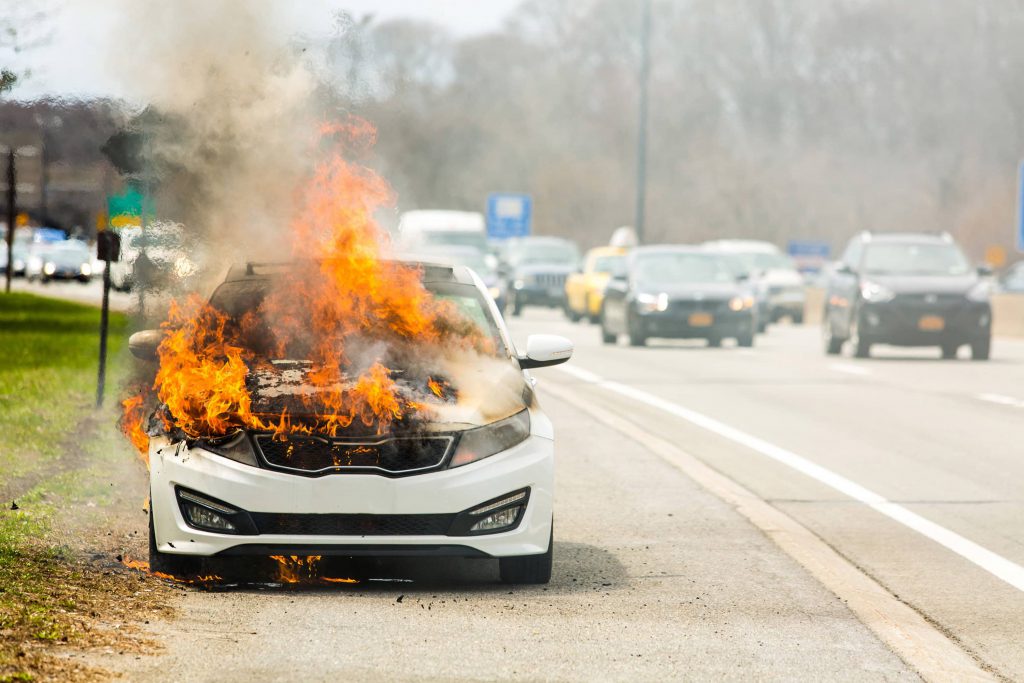Most Electric vehicles are considered prone to fire and manufacturers have attempted to circumvent the issue by separating the battery into smaller cells with firewalls to prevent thermal runaway from occurring. Other manufacturers are also building batteries with less flammable components which produce fewer harmful chemicals.
Another problem with EVs is the risk of thermal runaway. This refers to the rapid and extreme rise in temperature which spreads to other battery cells. As EVs have bigger batteries or more battery cells, it is especially dangerous.
If left unchecked, it could possibly lead to smoke, fire, and even explosions! And all it needs is a single battery cell to short circuit and combust to start the chain reaction.
Unlike popular belief, EVs may not be safer than ICE vehicles! In fact, if it catches fire, it’s actually even more dangerous and hazardous compared to ICE vehicles.
Why?
Well, it’s actually a lot more difficult to put out EV fires. When the battery pack catches on fire, it’s largely inaccessible to fire suppressants such as water. It’s also likely to reignite without sufficient cooling, resulting in a long-lasting fire.
Thus, the need for a large number of fire suppressants and effort to extinguish the fire makes this a risky ride!
The problem is EVs are increasingly high tech, which leaves more opportunities for hackers. As more electric cars are connected to the internet, this means that they’re easier to hack! And it’s not just a data breach or having your car stolen. We’re talking about tons of metal that can be controlled remotely, causing massive destruction and killing people.
And it’s shown to be completely possible with a Chinese company hacking a Tesla Model S in 2016. It’s one of Tesla’s many electric car problems and software updates have patched it up. But the continuous clash between the hackers and manufacturers means the risk of being hacked will always be there.
With many car companies rushing to fill the EV demand and cash in on the latest gold mine as quickly as possible, they may compromise on quality. Many EVs are catching on fire and being recalled multiple times such as the Hyundai Kona Electric, Ford Mustang Mach-E, Polestar and Volvo, Chevrolet Bolt EV, WM Motor and even Tesla.
As EVs are pushed to be the next mainstream car, there aren’t enough regulations to support the shift. There’s also a lack of data and testing compared to 100 years of data we have on ICE cars. So maybe it’s best to wait it out and let rules and regulations be settled before jumping in
